United Nations/CEDAW
Responsibility for lesbian rights comes within the concerns of ECOSOC (the Economic and Social Council) within the United Nations structure. This is the section of the United Nations that considers and coordinates all global economic, social and environmental issues within the UN subsidiary bodies. It coordinates the related work of all UN entities and regional commissions, as well as of its subsidiary bodies. For issues concerning women, ECOSOC: reviews the work of CSW (the Commission on the Status of Women) and takes action; integrates issues concerning women in other discussions; and considers them annually under a dedicated agenda item on mainstreaming such concerns into all policies and programmes of the UN system. UN Women was established to improve the UN’s ability to meet women’s needs worldwide.
Australian women played an important part in the creation of the UN and its formal recognition of women’s rights. The feminist, Jessie Street, together with a small group of other women, was instrumental in inserting language about sex-based rights.
Australian and other women fought hard for the inclusion of ‘lesbian’ in official documents produced for/by the UN Fourth World Conference for Women in Beijing in 1995. However, they were unsuccessful for the final version of the Platform for Action produced by the Conference which did NOT specifically recognise that lesbians face barriers to full equality. The specific reference to ‘sexual orientation’ was omitted and replaced with the term ‘other status’ in the key statement #46 in Chapter IV STRATEGIC OBJECTIVES AND ACTIONS of the Report of the Conference
We are still fighting for the word ‘lesbian’ to be acceptable language in UN documents, and for lesbian rights to be acknowledged as a separate issue from LGBTQI+.
NGO CSW69/Beijing+30 Forum
CoAL had been established the year before, to specifically improve participation by lesbians. A CoAL member (Sand Hall) who was involved at that time included a photo-essay with images of the Lesbian Tent. We believe it was the first time there was a visible lesbian presence at a UN conference and in China.
SPEAKERS: Susan Hawthorne, CoAL Convenor
Sand Hall, CoAL member
Jan Rivers, member of LAVA (Lesbians Action for Visibility Aotearoa)
Anna Kerr, Feminist Legal Clinic, (Convenor) WDI Aust’asia
(There were almost 30 events that give lip service to lesbians in using variations of the LGBTQ term but many used Queer and Transgender language that ‘disappears’ lesbians, as elsewhere.
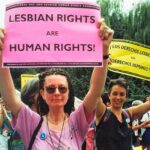
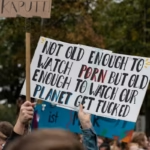
Image: © Sand Hall
Image: Unsplash
See LABORI report (September 2025) on Campaign in UN Women to erase all women (including lesbians in particular) and to erase men and boys as the main perpetrators of violence universally
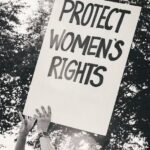
Image: Gayatri Malhotra, Unsplash

Image: Canva
Some key landmarks in UN structure & action
Key landmarks: ECOSOC, CSW, UN Universal Declaration of Human Rights, CEDAW, UN Convention on the Rights of the Child.
Image:United Nations
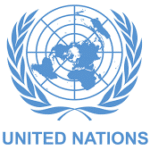
Secretary-General’s remarks to launch the Special Edition of the Sustainable Development Goals Progress Report (25.4.23)
Statement by Ms. Reem Alsalem, UN Special Rapporteur on violence against women and girls, its causes and consequences (22.5.23)
Letter from Reem Alsalem to WHO Director General complaining about WHO’s recent announcement that it intends to develop a guideline on the health of trans and gender diverse people, and to organize a meeting in Geneva on February 18-21, 2024, to develop
gender-affirmative treatment guidelines and policy recommendations.
See also the Society of Evidence Based Gender Medicine (SEGM) website.
- Yogyakarta principles
- Denton’s document
Yogyakarta Principles
For an historical critique, see: Julie Bindel & Melanie Newman ‘The trans rights that trump all’, TheCritic, (April 2021)
Republished by Sex Matters
The ‘Dentons document‘ (Only Adults? Good Practices in Legal Gender Recognition for Youth) was produced in November 2019. It uses a legalistic human rights discourse in a Eurocentric report that surveys various countries to provide a ‘guide of best practice’ in international human rights about ‘gender recognition’, with a focus on young people. Three organisations backed the report: IGLYO (International Lesbian, Gay, Bisexual, Transgender, Queer and Intersex (LGBTQI) Youth & Student Organisation) with financial assistance from the Rights Equality and Citizenship (REC) programme 2014-2020 of the European Union as well as the Thompson Reuters Foundation and Dentons, a global law firm–both provided pro bono support (footnote p.3).
The document was clearly designed as a political tool for transgender advocates to influence government legislature and media using human rights concepts (see pp. 18-21).
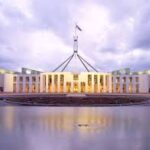
Australian Government reports to UN on Women's Rights
AAWAA feminist coalition letter to Australian government on 29 August 2025, exposing the gaps & calling for urgent amendments to Australia’s draft report for the periodic review of our country’s performance on protection of human rights to the UN.
See the AAWAA website for a copy of our letter and a link to the AAWAA podcast.
